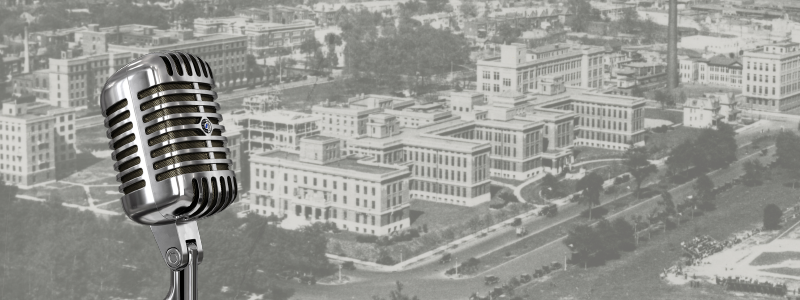
Washington University School of Medicine Oral Histories

David Goldring Oral History
Interviewer
Edwin W. McCleskey, Ph.D.
Loading...
Summary
David Goldring was interviewed by Edwin W. McCleskey on July 20, 1990, for approximately 19 minutes. Goldring discusses his experience working with Black pediatric patients at St. Louis Children’s Hospital and Homer G. Phillips Hospital.
Scope and Content
David Goldring relates stories he heard and his own experience with the admission of Black children to St. Louis Children’s Hospital.
He begins with stories he heard about the attitudes of chiefs of pediatrics, hospital administrators, and hospital board toward the admission of Black children to Children’s Hospital. Goldring discusses John Howland, who was the first chief of pediatrics at the hospital, and how Howland left after six months because the hospital board was opposed to the admission of Black children. This situation changed when St. Louis Children's Hospital opened the Butler Ward, a segregated ward for Black children in 1923.
Goldring then relates a story from his time as a resident in 1941-1944. He says that one night, a Black child needed an incubator and there were none available in the Butler ward, so Goldring admitted him to the infant ward. An administrator called the chief of pediatrics, Alexis Hartmann Sr., to report it, but Hartmann let the admission stand. Goldring next briefly discusses the integration of the staff of Children's Hospital.
He relates the role of Park J. White played in training Black interns and residents at Homer G. Phillips Hospital. Goldring later discusses the differences between working at Children’s Hospital and Homer Phillips, and the closure of Homer Phillips.
Biographical Information: Interviewee
David Goldring (1914-1992) was born near Odessa, Russia and came to the United States at the age of 9 with his family. He earned his B.A in 1936, and his M.D. in 1940 at Washington University in St. Louis. He interned at St. Louis City Hospital and had three years of residency in pediatrics at St. Louis Children's Hospital before going on active duty into the U.S. Army in 1944.
Goldring returned to Washington University and St. Louis Children’s Hospital in 1949 as instructor in pediatrics and full-time staff at Children's Hospital. David Goldring founded the St. Louis Children's Hospital cardiology division in 1950 and directed the department until his retirement in 1985. He briefly served as the hospital's acting physician-in-chief for three years from 1964-1967.
Goldring was also an educator at Washington University School of Medicine in its department of pediatrics and was head of that department from 1950-1981. Due to his legacy, St. Louis Children's Hospital named its Division of Pediatric Cardiology in his honor.
Biographical Information: Interviewer
Edwin W. McCleskey, Ph.D. was an assistant professor in the Department of Cell Biology and Physiology at Washington University School of Medicine from 1986 to 1993. His research addressed the biophysical properties of calcium-selective ion channels and the discovery of ion channels that trigger different types of pain. He also taught physiology and neuroscience.
Interview Date
1990-07-20
Collection Identifier
OH101 (PC054-S04)
Length
Approximately 19 minutes.
Restrictions
Users wishing to publish (in whole, or in part) content taken from the audio or transcript of this oral history interview must request, sign, and return a Statement of Use form to the Becker Archives. For detailed information regarding publication and use of this oral history, contact the Becker Archives (arb@wusm.wustl.edu).
Recommended Citation
David Goldring Oral History, OH101 (PC054-S04), Bernard Becker Medical Library Archives, Washington University in St. Louis.
Disclaimer
The Becker Archives provides access to this oral history interview as a record of the past. This interview reflects the attitudes, perspectives, and beliefs of the interview participants, which may reflect outdated, biased, and offensive views and opinions. The Becker Archives does not endorse the views expressed in this interview, which may contain materials offensive to some users.



